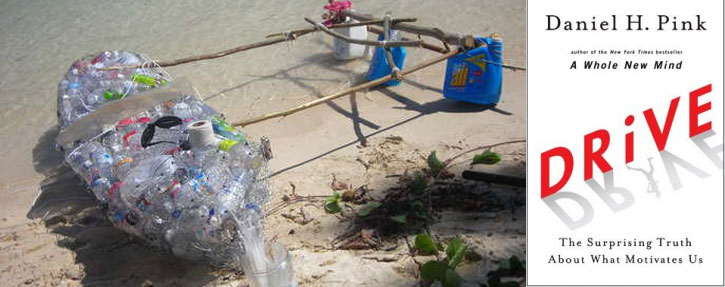
More effective collaboration can be achieved by applying simple scientific experiments like the Hawthorne Effect to small-medium sized groups.
"The Hawthorne Effect is a form of reactivity whereby subjects improve an aspect of their behavior simply in response to the fact that they are being studied, not in response to any particular experimental manipulation."
For example, in Germany, the management of a hospital told their employees that their hygiene practices would be monitored. Hand washing increased 55% overnight. Another example cited in Thomas Goetz's most recent book, "
The Decision Tree" showed how teenagers that were simply provided with a new type of toothpaste and a two minute timer reduced their plaque levels almost 20%. By comparrison, the control group in this experiment saw an 8% increase in plaque.
All fine and good, but how can this learning be applied to
my job? Consider a few simple tweaks to your workplace:
- Adjust the lighting. The original Hawthorne experiment tested how the production of factory workers would increase or decrease depending on whether the lights were turned up or down. Turning lights brighter or darker had no effect. Changing the light in any direction improved output.
- Switch up the "knowns":
- Change the agenda the day of your session
- Give your team half the time they were expecting to prepare their output - believe it or not, they will be more efficient and their solutions more effective
- Change the expected template. Google "excellent free PowerPoint templates" and select any one that strikes your fancy and you're guaranteed to inspire your team. Better yet, snap a picture
with your phone and inlcude the people working/you're presenting to in the PowerPoint (having your team literally represented with the output will motivate them beyond words)
- Add fun to your meeting or collaborative engagement. Check out
The Fun Theory. Nominate a "Fun Monitor" to make sure you aren't having to much fun and doing to little work.
- Read and implement techniques from industry leaders like Ken Thompson on
Virtual Teaming.
And finally, don't get stuck adopting the "carrot-and-stick approach" to make your work a success. Check out Daniel H. Pink's new book "
Drive: The Surprising Truth About What Motivates Us". This book shares the secret to high performance and satisfaction—at work, at school, and at home. He claims that the deeply human need to direct our own lives, to learn and create new things, and to do better by ourselves and our world is the best way forward. Amazingly enough this supports much of the modern day research around why the Hawthorne Effect might actually work.
Plastic bottle photo courtesy of
Instructibles